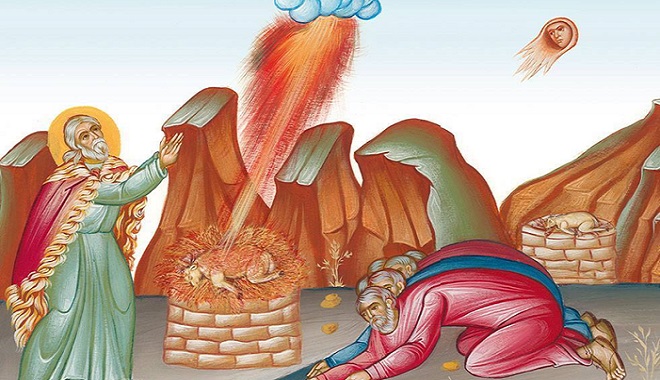The Prophet Elijah: Old and New Testament Law
21 July 2023It’s beyond doubt that the law of God in the pre-Christian era demanded the implementation of all its provisions, without exception, and imposed harsh punishments on transgressors. The law of the Old Testament was harsh, because ancient Israel was at a low level spiritually and wasn’t able to apply it otherwise. Under those conditions, only fear of punishment was able to rein in the people, who quickly forgot God’s benefaction and turned to foreign gods, unjust actions, and a degenerate life-style, as is clear from the whole course of their history.
For the New Testament, the commandments of the Old became the cause of a falling away from God’s grace, and, at the same time, their instructional nature was completed in the person of Jesus Christ. The death penalty had no place in this new context, since the whole of the legal infrastructure of the Old Testament was abolished through the grace of Jesus Christ.

The Church retains its respect for the God-given law of the Old Testament, but not its legal mind-set. The Fathers didn’t deny all the provisions of the Old Testament: they abolished some and retained others as a valuable cultural legacy for the worship and theology of the Church, while investing others with spiritual meaning. This was because new light had been shed on the old revelations concerning him who came precisely in order to fulfil and complete the Law and the Prophets.
The Fathers saw God’s plan for our salvation unfolding in the Old Testament. In the Old Testament, the Law is a guide to Christ, since the center of its theology is Christ; in the New Testament it leads to perfection in Christ. With Christ’s redemptive work, the transition from the guardianship of the Law to the state of grace was achieved; the passing over from the earthly promised land to the spiritual land of the Church. In the end, law in the Old Testament was a control against transgression, whereas the grace of the New absolves the transgression. This, in any case, was the purpose of Christ’s incarnation.
To return to the Prophet Elijah, we note that he acted and worked in God’s name and as an instrument of his righteousness. Any judgment of an action depends directly and primarily on the intention behind it. If we decouple the action from the intention, we will inevitably come to an erroneous assessment of it. In his efforts to preserve the remorse of the people and to keep them firm in their faith, the prophet risked shaking this faith again.
After the great miracle, the drought came to an end and Elijah bowed his head between his knees and prayed. Unfortunately, the demonstration of God’s superiority didn’t change the religious condition of the country. Fearing the wrath of Jezebel, Elijah fled to Mount Horeb in order to save his life. He complained to God that the Israelites had breached the contract which they’d made with him and were now worshipping foreign gods. Elijah was now the only true and genuine prophet of God and here they were trying to put him to death. But God didn’t abandon his prophet. Elijah bowed to God’s will and found the strength to continue his struggle until he was snatched up into heaven.
By the holy hymnographer the Prophet Elijah is called, ‘an incarnate angel, the foremost of the prophets, the second precursor of Christ’s presence, glorious Elijah’. He was so beloved by God that he was invested with the greatest honor known to human nature: he was made like our first ancestors, that is, he had the potential for immortality. He has been kept alive until the Second Coming and has been assigned the role of forerunner of this.






